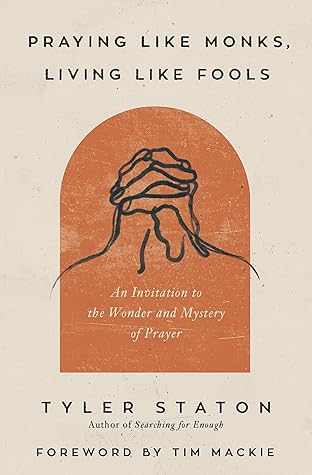More on this book
Community
Kindle Notes & Highlights
by
Tyler Staton
Let’s say, hypothetically, your roommate doesn’t know Jesus. Before uttering a word of prayer for her, you’re confronted by a question that spirals inward. Why really do I want my roommate to find God? Is it because of a pure desire for her to be met by divine love that makes her whole? Or do I find comfort in someone else reaching the same conclusion I’ve made, like if this whole thing is just a superstitious way of making life bearable, at least they’ll laugh at us one day, not just me?
When it comes to prayer, God isn’t grading essays; he’s talking to children. So if God can delight in prayers as dysfunctional as the ones we find wedged into the middle of the Bible, he can handle yours too without you cleaning them up first. If the Bible tells us anything about how to pray, it says that God much prefers the rough draft full of rants and typos to the polished, edited version. C. S. Lewis said of prayer, “We must lay before Him what is in us, not what ought to be in us.”
Jesus was intentional and interruptible. There’s a word for that posture: unhurried. Hurry is the great enemy of the spiritual life. Why? Because hurry kills love. Hurry hides behind anger, agitation, and self-centeredness, blinding our eyes to the truth that we are God’s beloved and she is sister, he is brother.
Many confuse stillness with waiting for revelation. Sometimes revelation does come, and it’s marvelous. But that’s not the purpose of stillness. The purpose is consent. It is the daily practice of consenting to the work of God’s Spirit, which is deeper than understanding or words. It is how “deep calls to deep”31 from our souls to his.


